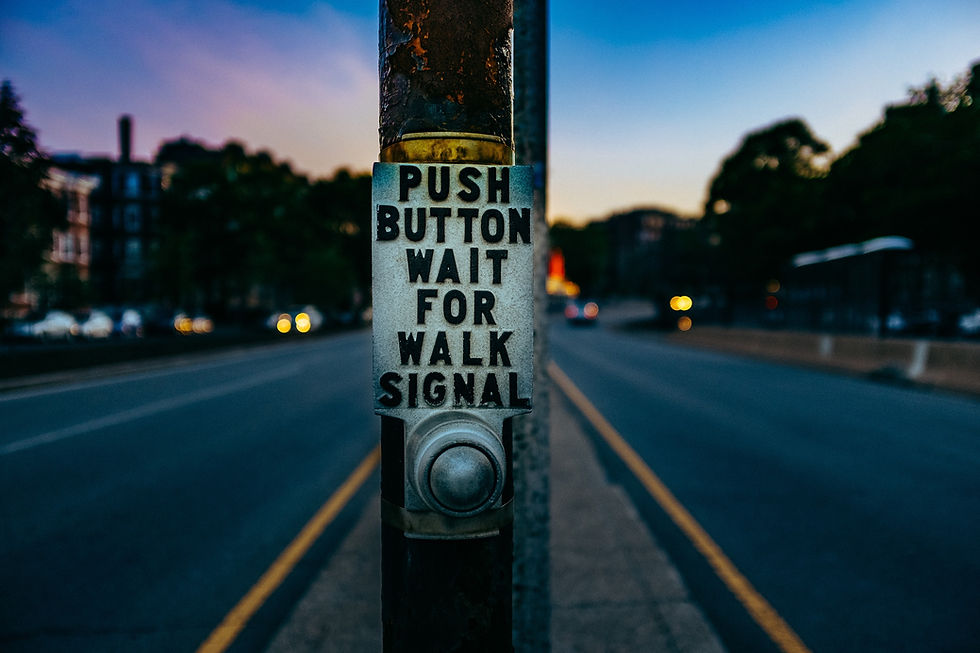catapult: attention
- ihlrmail
- Jun 11, 2019
- 3 min read
Updated: May 30, 2022

In March, in Portland, a young man in a wheelchair asked me if I shape my poems the way I often do—long lines, a continuous strophe down the page—as a means of experiencing velocity, speed, and I said, yes, smiling, gratified by the insight. We were in a crowded space, the din of passers-by almost too much to hear his quiet voice, and I leaned over to better hear him. To give my attention in the best way I was able. Once, a poet said to a group I was a part of, that the only thing that we, as poets, owed the world was our attention, and this has always made sense to me.
I pay attention to the world on long walks in warm weather. This morning I'm thinking of the shopping center in Atlanta that we used to live down the street from, where once I saw Usher and his posse, roaming the aisles of Target, grabbing up bags of chips and pallets of soda. I followed them around for a while, at a distance, just watching, because when would I ever see that again? In the years since, it's been a story I tell, but have never written about, until now.
This morning I'm thinking about Terrance Hayes's first book, in the days before my first book would be accepted; one afternoon I was sitting in a friend's office, chatting about the end of the spring semester. This was Tuscaloosa, Alabama, where I was hiding out from a world that I suspected held little value in the worth of poetry. A student stepped into the doorway of my friend's office, clearly perturbed. The issue: the university bookstore had only given her a dollar for Muscular Music and that was less than she had expected. Oh well, she sighed, at least I'll get a Coke out of it.
That was my future right there, as far as writing went, and by that point in my life I don't think I could have done anything different. The following years would see me moving east: to Carrollton, Georgia, a town where I never saw anybody famous, to Atlanta, where I saw Usher, Janet Jackson, and Randy Jackson, the producer and American Idol judge, sitting in a car in a parking lot, screaming at a cell phone. I thought of waiting, off to the side, watching him bellow with the window down. But I had a class to teach, and I was almost late.
It wasn't that morning that a car hit me while I was crossing the street. A young woman was blocking the crosswalk and chatting on the phone. I waited for her to finish talking, to move on, because I sensed she had no attention for the world around her. That she was dangerous. I waited minutes. She didn't move. So I started to move around the side of her car and as I did so she took off, sideswiping my wheelchair, scraping the whole side of her vehicle. I was spun around, shocked but unhurt. I looked up to see her looking over her shoulder to see what she had struck, which was me, then speed off. When I got to class, I said to my students, never doubt my devotion to you.
I probably thought about Terrance Hayes. That dollar. The world that doesn't care.
----------

Paul Guest has published three collections of poetry: The Resurrection of the Body and the Ruin of the World (winner of the 2002 New Issues Poetry Prize), Notes for My Body Double (winner of the 2006 Prairie Schooner Book Prize), and My Index of Slightly Horrifying Knowledge (Ecco/HarperCollins, 2008). His poems have appeared in The Paris Review, Poetry, Tin House, The Kenyon Review, and elsewhere. His memoir, One More Theory About Happiness (Ecco), was selected for the Barnes & Noble Discover Great New Writers Program. He has been a Guggenheim Fellow and recipient of a Whiting Writers' Award. Read the entire CATAPULT series here.
Comments